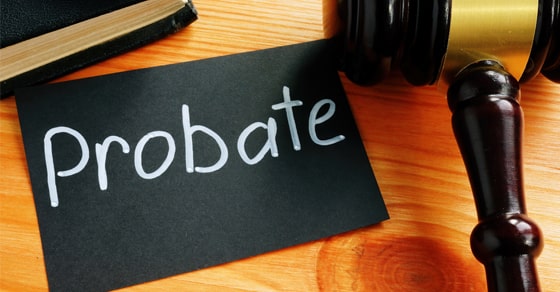
Few estate planning subjects are as misunderstood as probate. But circumventing the probate process is usually a good idea, and several tools are available to help you do just that. Keep reading to learn how to avoid probate and why it’s beneficial to do so.
Why You Want to Avoid Probate
Probate is a legal procedure in which a court establishes the validity of your will, determines the value of your estate, resolves creditors’ claims, provides for the payment of taxes and other debts, and transfers assets to your heirs.
Depending on applicable state law, probate can be expensive and time consuming. Not only can probate reduce the amount of your estate due to executor and attorney fees, but it can also force your family to wait through weeks or months of court hearings. In addition, probate is a public process, so you can forget about keeping your financial affairs private.
Is probate ever desirable? Sometimes. Under certain circumstances, for example, you might feel more comfortable having a court resolve issues involving your heirs and creditors. Another possible advantage is that probate places strict time limits on creditor claims and settles claims quickly.
How to Avoid Probate
There are several tools you can use to avoid (or minimize) probate. (You’ll still need a will — and probate — to deal with guardianship of minor children, disposition of personal property and certain other matters.)
The right strategy depends on the size and complexity of your estate. The simplest ways to avoid probate involve designating beneficiaries or titling assets in a manner that allows them to be transferred directly to your beneficiaries outside your will. So, for example, you should be sure that you have appropriate, valid beneficiary designations for assets such as life insurance policies, annuities and IRAs, and other retirement plans.
For assets such as bank and brokerage accounts, look into the availability of “pay on death” (POD) or “transfer on death” (TOD) designations, which allow these assets to avoid probate and pass directly to your designated beneficiaries. Keep in mind, though, that while the POD or TOD designation is permitted in most states, not all financial institutions and firms make this option available.
What If You Have a Complicated Estate?
For larger, more complicated estates, a revocable trust (sometimes called a living trust) is generally the most effective tool for avoiding probate. A revocable trust involves some setup costs, but it allows you to manage the disposition of all your wealth in one document while retaining control and reserving the right to modify your plan. It also provides a variety of tax-planning opportunities.
To avoid probate, it’s critical to transfer title to all your assets, now and in the future, to the trust. Also, placing life insurance policies in an irrevocable life insurance trust can provide significant tax benefits.
The Bigger Picture
Figuring out how to avoid probate is just part of estate planning. The knowledgeable team at Ramsay & Associates can help you develop a strategy that minimizes probate while reducing taxes and achieving your other estate planning goals. Contact us today to learn more.



